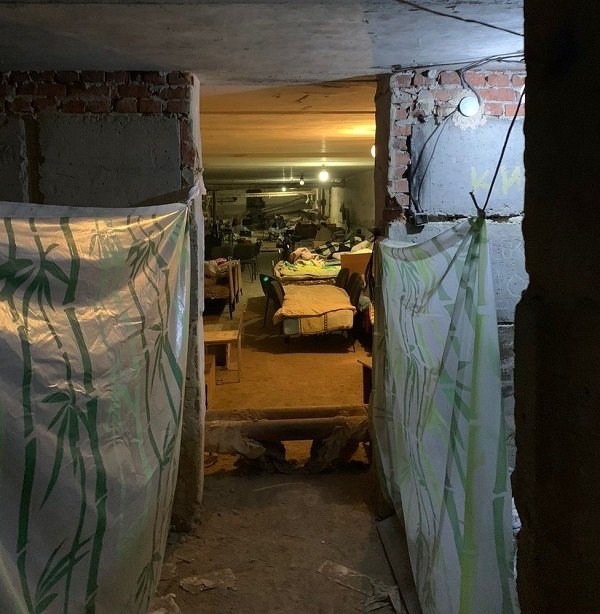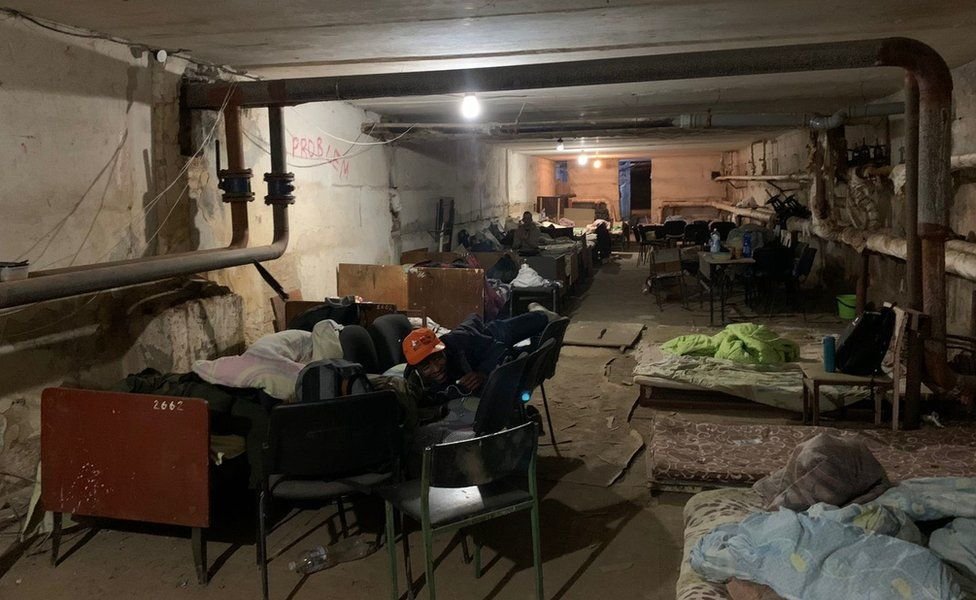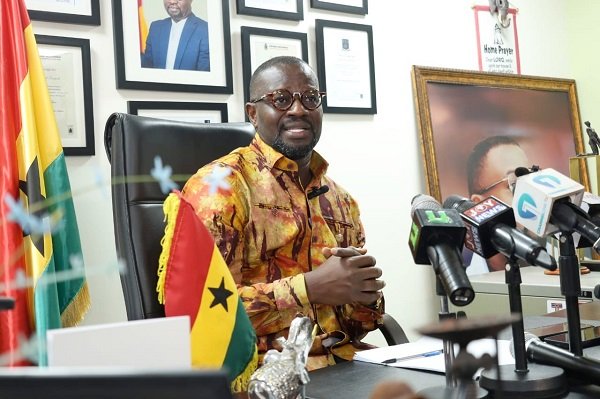Hot!
Ukraine: Trapped Nigerian on friendship and terror in Sumy

Nigerian veterinary student Samuel Otunla has been stuck in the north-east Ukrainian city of Sumy since the outbreak of the conflict. Ahead of reports that evacuations have begun, he sent the BBC an account of life in a city that is close to the Russian border and frontline.
The whole experience over the past 10 days has been nothing short of traumatic.
In cities further west, civilians have been able to leave and cross the border to safety in Poland, Romania, Hungary or Slovakia but we have been unable to leave Sumy.
The railway has been closed so there are no trains.
The main roads are largely inaccessible – some have been destroyed to stop Russian troops from advancing, while others have been totally blocked and taken over by the Russians.
Nevertheless, there are civilians who have made it out by road managing to negotiate their way through all the checkpoints. Others have tried and have either been shot at and forced to turn back or have reached dead ends where broken bridges have made it impossible to proceed.
Yes, it is possible to leave Sumy but it is extremely risky – and expensive.

Expensive because the Ukrainian drivers who are able to transport students are charging between $2,000 and $5,000 (£1,500 and £3,800) for a drive down south of 200km (124 miles).
After that anyone fleeing needs to catch a free train to a city in the west, like Lviv, and then cross the border.
So, in reality, we can’t get out.
Officials from Sumy National Agrarian University told us a couple days ago that there were discussions to set up a humanitarian corridor to allow civilians to leave Sumy and other areas safely.
On Monday, buses had been prepared so that students could be moved but unfortunately the Russians have not agreed to a ceasefire so the Ukrainian government cannot, for our own safety, transport us.
The Nigerian government has helped students get back home but, so far, only once they have managed to cross the western border, which is 1,300km away – so that doesn’t help us, at least not yet.
The Nigerian embassy in Russia (and other African countries I understand) has offered us the option of being taken to Russia and evacuated from there.
Many students have rejected this idea and rightly so. Russia is the enemy.
The best option is to get us to the west.
Meanwhile in Sumy, we are constantly getting safety warnings from the military. When the siren goes off everyone has to run down to the bomb shelters for safety.

Usually from down in the shelter, we hear the shelling and gunfire.
I, together with over 60 international students, Ukrainian students and hostel staff have spent the past seven nights in a dusty basement that doubles as a bomb shelter. It’s not a good experience.
We’ve received financial help from different organisations and through these we have been able to get groceries and other supplies.
We don’t know how much longer we will be here but we may need more supplies soon.
Source: BBC
Hot!
Annoh Dompreh raises alarm over DACF arrears, calls for payment of contractors

The Member of Parliament for Nsawam Adoagyiri, Frank Annoh Dompreh, has expressed concern over delays in the release of the District Assemblies Common Fund, warning that the situation is stalling development across the country.
On his facebook page, he described as a matter of urgent national importance, the Minority Chief Whip pointed to what he sees as a growing crisis of unpaid contractors, abandoned projects, and halted infrastructure works in many districts.
He noted that several communities are grappling with half completed schools, unfinished health facilities, abandoned markets, deteriorating roads, and stalled sanitation projects.
According to him, many contractors who have executed projects for district assemblies have not been paid, forcing some construction firms to demobilise from sites while workers lose their jobs.
He stressed that the District Assemblies Common Fund is not a discretionary allocation but a constitutional requirement under Article 252 of the 1992 Constitution, intended to support development at the local level.
In his view, years of delayed releases and accumulated arrears have weakened district development financing and disrupted projects meant to improve living conditions in communities.
He further argued that some payments made in recent years were largely the settlement of old debts rather than funding for new or ongoing projects, a situation he believes has affected contractor confidence and local economic activity.
He described the issue as more than a budgetary challenge, characterising it as a development emergency and a governance concern.
He therefore urged the appropriate authorities to pay outstanding DACF arrears, settle contractors who have completed their work, and ensure that transfers to districts are automatic and predictable.
He maintained that decentralisation can only succeed when district assemblies receive adequate and timely funding to carry out development projects.
He emphasised that stalled projects directly affect ordinary citizens, since they rely on such infrastructure for education, healthcare, transportation, sanitation, and economic activities.
He called for renewed attention to grassroots development, insisting that national progress should not be concentrated only in major cities but extended to all communities.
By: Jacob Aggrey
Hot!
Breaking: Footballer who killed two children in Abesim handed lifetime sentence

Richard Appiah, the footballer who killed two children and stored part of their bodies in a fridge at Abesim in the Bono Region in 2021 has been handed a lifetime sentence.
This was after a five member panel of judges at the Accra High Court returned a verdict of guilty against the convict.
Appiah, 32, also a draughtsman would spend the rest of his life in prison after he was convicted of murder.
More more more
BY MALIK SULLEMANA






